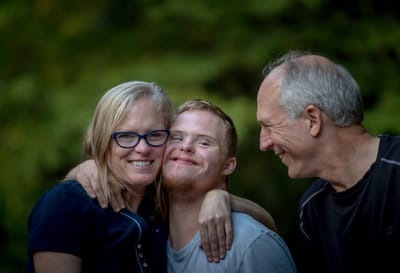Register Family Trust Online
Protect Your Family
Protect Your Assets
R5500 - All-Inclusive Fee
Tel: 087 0010 733
Louwrens Koen Attorneys
How can a Family trust benefit your Family?
Learn about the benefits of Trusts.
We will assist you to:
- Protect your assets from creditors.
- Legally pay as little tax as possible.
- Make provision for your estate to be passed on to your beneficiaries as smoothly as possible.
- Maximise your overall profits when buying property and significantly reduce your CGT and estate duty bill.
- Avoid all inheritance tax liability.
- Create personal confidentiality.
- Safeguard against financial loss in your own business.
OUR TEAM IS HERE TO ANSWER YOUR FAMILY TRUST QUESTIONS
CONTACT US TODAY AND WE WILL REPLY WITHIN 24 HOURS
Trust Services
Various Family Trust Services

Register Trust - R5500 - Apply Online
Complete the Online Trust Application form and submit any questions you might have. Set aside at least 30 minutes to properly complete the form and to upload requested documents. If all documents are not available it can be emailed later. Make sure that the spelling of names and surnames are correct (as per your ID documents) and that all the info supplied is complete (i.e. ID numbers, addresses, occupation) as it will speed up the process of getting the necessary documents prepared for you.

Change Trustees - From R4500
From time to time the Trustees need to be changed. Louwrens Koen Attorneys can assist you with removing, adding, or changing the Trustees of the Trust. From R4500 all-inclusive fee. Contact Hanelie de Beer 0870010733 or info@louwrenskoen.co.za

Amend Trust Deed - R5500
The trust deed can be amended. Let Louwrens Koen Attorneys assist you. Contacte Hanelie de Beer on 0870010733 or info@louwrenskoen.co.za to get started. From R3500 All-Inclusive Fee.
WHATSAPP - MESSAGE US!
Contact
- Louwrens Koen Attorneys 417 Kirkness Street, Sunnyside, Pretoria, South Africa
What Does a Independent Trustee Do?
Functions and responsibilities of an Independent Trustee.

The Trustee can, depending on state law and the terms of the trust agreement, delegate certain duties to others, such as hiring a financial advisor to oversee investments or hiring a property manager to oversee rental real estate. But the Trustee must use good judgment and due diligence when delegating duties and must also avoid any conflicts of interest (such as hiring a sibling as the trust's investment advisor) unless the beneficiaries consent.
An independent trustee is a person who cannot benefit from the income or assets of the trust, nor are they related to a beneficiary of the trust, and can thus play a crucial role in the proper separation between ownership of the trust assets and the enjoyment thereof.
In a landmark case in 2005 – Land and Agricultural Bank of South Africa v Parker – the Supreme Court of Appeal ruled that there was no proper separation of ownership or control of the trust assets from their enjoyment or use. As the trustees are entrusted with the control of the assets in the interest of the beneficiaries, inadequate separation may result in the trust being regarded as an extension of the estate of the founder.
The court suggested the appointment of at least one independent outsider as trustee to every trust where all the beneficiaries are related to one another, which resulted in the Master of the High Court enforcing the principle and requiring all newly formed family business trusts to appoint at least one independent trustee.
A simple definition of an independent trustee is someone who is not related to the founder or trustees and who has no beneficial relationship with them. This should ensure adequate separation of control from enjoyment. A trustee must not be swayed to support any decisions of the founder or co-trustees for fear of losing fees. A trustee who is also a service provider of the trust should be subject to the scrutiny of an independent trustee to ensure everything is undertaken at arms’ length and to maintain due care and diligence.
Independent Trustee in existing and new trusts to assist founders and Trustees with compliance in respect of the following:
- Trust Property Control Act.
- Income Tax Act.
- Other relevant legislation.
- Compliance will focus on:
- Satisfying the terms of the Trust Instrument;
- Guiding the Trustees on their rights, powers and responsibilities;
Ensuring that proper records are kept as regards:
- Trustee meetings, minutes of such meetings and resolutions;
- Trust documents;
- Annual financial statements;
- Annual tax returns;
- Amendments to the Trust instrument and Trustees as and when required;
- Ensuring that the investment of the Trust Capital is undertaken in a prudent and professional manner having regard to the needs of the beneficiaries, the term of the Trust and investment powers contained in the Trust instrument;
- Ensuring that the interests of one class of beneficiaries (income) does not outweigh the interests of another class (capital). This requires a balance between the production of income and the preservation of capital;
- Ensuring that the Trustees disclose any potential conflict of interest and manage any such potential conflict in accordance with the Trust instrument;
- Fulfilling the role of an honest broker where there may be competing interests between beneficiaries;
- Keeping the Trustees abreast of any changes in the relevant legislation and also informed about relevant Court Rulings;
- Ensuring that the objectives of the Trust are satisfied in accordance with the Trust instrument; and
- Risk management in general.
Understanding a Trustee's Fiduciary Duty

When administering the trust, a Trustee must set aside personal feelings and goals and instead do what is in the best interests of the trust beneficiaries - this is referred to as the Trustee's "fiduciary duty." A well-drafted trust agreement will give the Trustee guidance about what the priorities should be for each beneficiary. For example, a trust for the benefit of a surviving spouse and children could state that the spouse's needs have priority over the children's needs, or vice versa. Or a trust that has been set up to provide for the education of grandchildren could specify what types of schools the grandchildren can attend (public, parochial, trade, state funded, private) and what will be paid for from the trust fund (tuition, room, board, books). A trust may also require the Trustee to look at other assets available to the beneficiary outside of the trust fund before making distributions to the beneficiary.
If the trust agreement does not contain any specific guidelines (unfortunately, many older trusts that I run into do not), then the Trustee must look for guidance from state law and may even require the assistance of a judge to make the right decision in certain situations.
Louwrens Koen Attorneys act as independant Trustee at a very reasonable fee.
Contact us for further details:
Louwrens Koen Attorneys
Who May Need a Trust?
Benefits and uses of a Family Trust

- Minors-If a minor is an heir to an estate where there is no will, or if there is a will but no trust clause, the inheritance must be paid into the Guardians' Fund of the Master of the High Court.
- Persons that cannot take care of their own affairs-If persons are not able to take care of their own affairs due to physical or mental conditions, their assets must be placed under the protection of a curator.
- To protect assets-A trust could be structured in such a way that it does not vest in your hands and will therefore not form part of your estate. In the event of your insolvency, creditors will not be able to lay claim to these assets.
- Complex Family Structure- If you are divorced, or if you want to keep certain assets in your family, it could complicate inheritances and make your will very complex.
What is an Family Trust?
South-African Family Trusts Explained.

The protection of your loved ones' financial interests is extremely important in the planning of your estate. You want to be sure that your family, and especially minors, will be looked after, and that your estate and income tax obligations are kept as low as possible, so that your heirs can enjoy the full benefit of your estate.
An Inter Vivos Trust remains one of the most valuable mechanisms to protect and grow assets. Inter Vivos Trusts are often recommended for saving estate duty, but there are other reasons, such as:
• To protect your assets from creditors or relationship claim
• To provide continuity after death
• To protect your assets if a beneficiary is a minor or disabled
However, an Inter Vivos Trust is not suitable for every individual or family and you need to consult a lawyer in this regard
Testamentary Trusts are created in a person's Will and only come into effect on the death of that person. The Will then operates as the trust deed spelling out the terms of the trust. The terms would state for whom and under what circumstances beneficiaries are to benefit and when the trust is to terminate. There are various reasons and circumstances to consider when deciding whether to create a Testamentary Trust, some relating to family issues and others to monetary and tax considerations.
A Will is an important legal document that has a significant impact on how your family, or those dearest and dependant on you, live after you die. A Will should be reviewed and updated from time to time. A change in your personal and financial circumstances should automatically trigger a review. Legislation or decisions made by the courts also impact on Wills and estate planning and it is therefore extremely important to obtain expert advice when drafting a Will.
A Trustee is responsible for managing all of the property owned by a trust for the benefit of the trust beneficiaries. The exact duties of a Trustee will vary based on what assets are owned by the trust. For example, if the trust consists of bank and investment accounts, then the Trustee will be responsible for overseeing these accounts. Or, if the trust owns rental real estate, then the Trustee will be responsible for managing the rental property.
F.A.Q
How to register a trust in South Africa?
- A cover letter to the Master of the High Court
- Trust Registration and Amendment form (J401)
- Two original signed trust deeds
- Proof of payment of the Master of the High Court’s fee
- Master of the High Court’s Annexure B form for the fee
- Acceptances of trusteeship by trustee (J417) by each of the trustees, as well as a summary of the nominated trustees’ qualifications and their experience in Trust management. The Master of the High Court must be convinced regarding the trustees’ competency in discharging their duties. If the Master of the High Court is not convinced, they may call for the trustees to put up security, and can insist that the trust be audited.
- A declaration by trustees
- A sworn affidavit signed by the independent trustee
- A certified copy of the Identity Document of each of the trustees
- Beneficiaries Declaration (J450)
- An undertaking by the auditor/accountant (J405) to administer the accounting records of the trust in accordance with generally accepted accounting practice
Can one De-register a trust?
The following documents are needed for the termination of a Trust:
- A resolution by Trustees confirming the desire to terminate the Trust
- The original letter of authority;
- The closing bank statement reflecting a nil balance;
- Proof that the beneficiaries have received their benefits
The following documentation will be required by SARS:
- A resolution by Trustees confirming the desire to terminate the Trust
- A copy of the letter of authority;
- The closing bank statement reflecting a nil balance;
- Proof that the beneficiaries have received their benefits
- Copy of the last Annual Financial Statements, reflecting zero assets and zero loan accounts, with the IT34A assessment.
How much does it cost to register a Trust in South Africa?
Do trusts register with the CIPC?
What assets can be registered to the trust? Can cars and other movable assets be put in the trust?
How long does it take to register a trust?
What is the difference between a living and testamentary trust?
What are some of the reasons to establish a Trust?
- To provide financially and otherwise for minor beneficiaries
- To honour maintenance commitments in terms of a divorce order and settlement
agreement. - Providing for a disabled dependant or aged parent
- Protecting and preserving assets for the next generation
- Serving as a holding vehicle for assets as part of estate planning structuring
- Providing a regular income for favourite charities (public benefit organisations).
- Providing for the dependants of a deceased employee
What are the Trustee's main duties?
- Keeping a balance between present and future beneficiaries, where the interests of one cannot outweigh those of the other.
- Treating all beneficiaries impartial.
- Establishing a balance between the production of income and the protection of capital.
- Ensuring that the property of the trust retains its value, and where possible, appreciates.
- Keeping trust property in a proper state of repair.
- Switching speculative investments awarded in trust, to safer investments.
- Investing surplus funds timeously.
- Making sure that co-trustees act prudently.
- Reviewing the trust regularly.
- Submitting statutory returns, such as tax returns, timeously.
- Recording important decisions in writing.
- Honouring the wishes of the Testator or Founder.
- Entertaining requests for assistance from beneficiaries.
Pricing Table - south-african trust services
Trust Registration
MOST POPULAR- Expediated Drafting of Trust Deed and Lodgment Documents (1 Week)
- Lodging at the Master
- Follow Up
- Registration of Trust
- Delivery of Authority and Trust Deed
Change Trustees Family Trust
- Drafting Documents
- Lodgement at Master
- Acquiring a new Letter of Authority
Amend Trust Deed Family Trust
- Change or amend Trust Deed
- Complete Service
- All Attendance Included.
Online Application Family Trust
Register Family Trust for R5,500 - Get Started
Complete the form as completely as possible. Should you have question please contact with us on Tel: +27870010733 or E-mail: admin@louwrens-koen.co.za.
OUR TEAM IS HERE TO ASSIST & ANSWER YOUR QUESTIONS
CONTACT US TODAY AND WE WILL REPLY WITHIN 24 HOURS